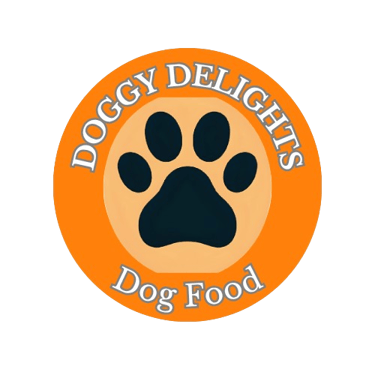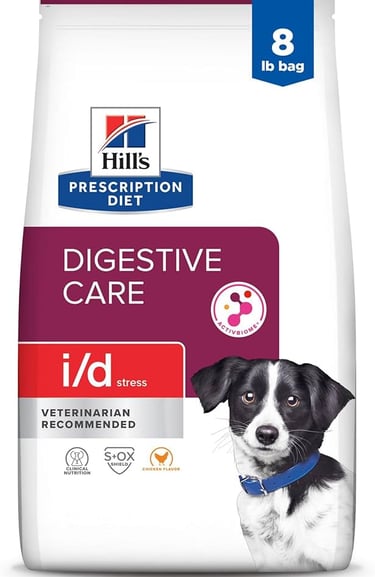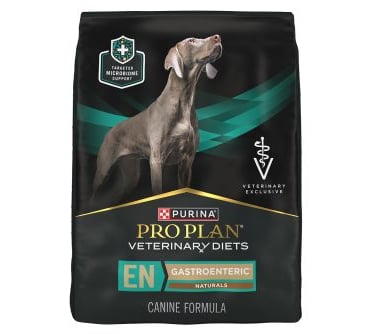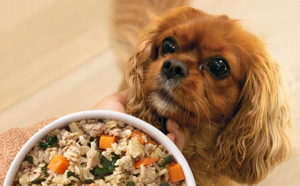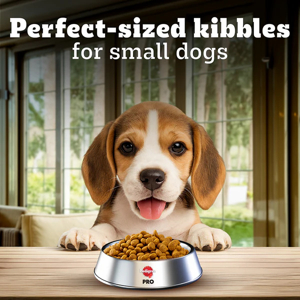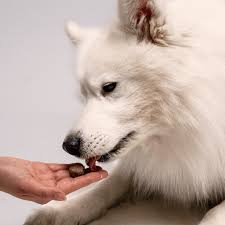Leading Dog Foods for Diarrhea
Choosing the best dog food for your mixed breed companion involves considering their unique dietary needs, activity levels, and sensitivities. From fresh options like The Farmer's Dog to budget-friendly choices like Taste of the Wild, these top-rated brands ensure your furry friend receives optimal nutrition at every stage of life.
Home > Leading Dog Food > Leading Dog Foods for Diarrhea






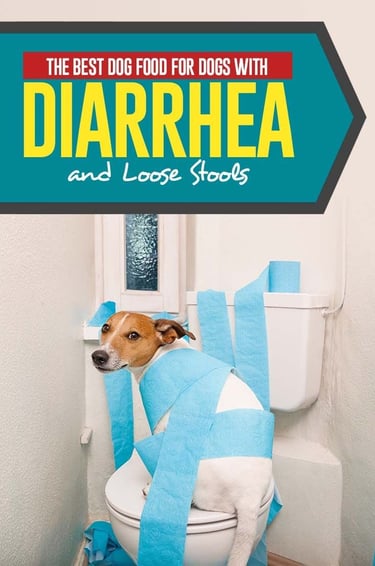

When your dog is suffering from diarrhea, finding the right food is crucial for quick recovery and ongoing digestive health. The best dog foods for diarrhea are gentle on the stomach, easy to digest, and often formulated with limited ingredients to reduce the risk of further irritation. Below, we break down the top 10 leading dog foods for dogs with diarrhea, including their key ingredients and why they’re recommended by veterinarians and pet nutritionists.
Get the Best Deals
Free Dog Food Alerts
How to Choose the Correct Dog Food
Related Articles:
1.Which dog food brands offer the best probiotics for diarrhea?
2.How do grain-free dog foods compare to traditional dog foods for sensitive stomachs?
4.How can I tell if my dog's digestive issues are due to a food allergy or sensitivity?
5.What are the benefits of using insect protein in dog food for sensitive stomachs?
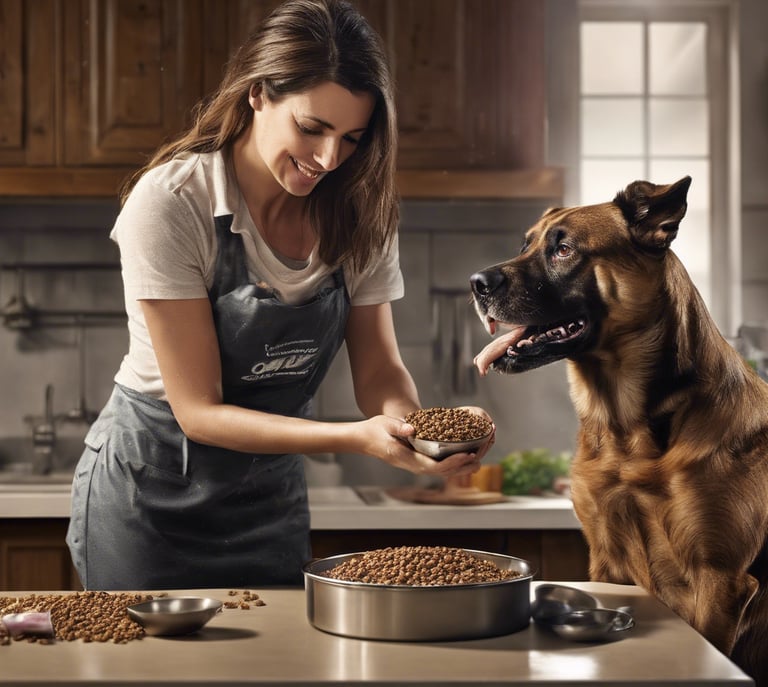



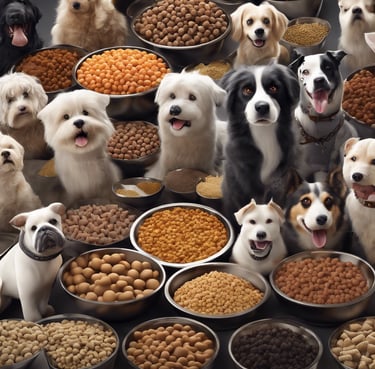

Top 10 Leading Dog Foods for Dogs with Diarrhea:
Ingredients, Benefits, and Why They're Recommend
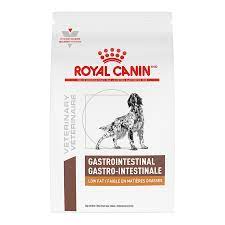

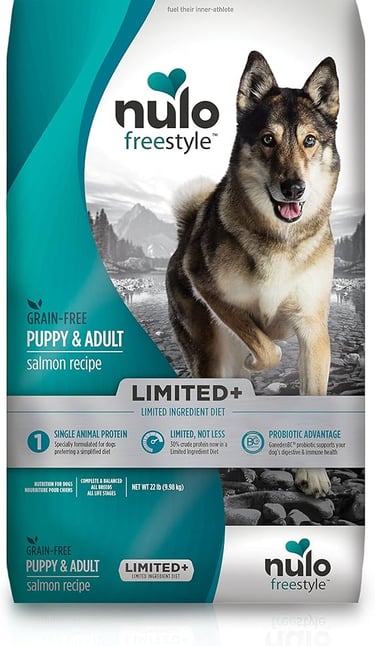

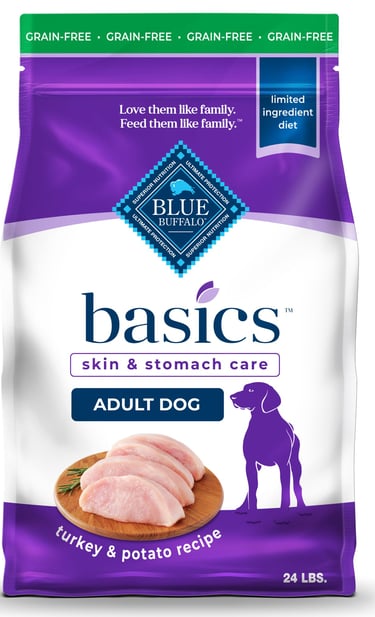

Amazon Associate
This prescription diet is a gold standard for dogs with chronic or acute gastrointestinal issues. It features highly digestible proteins and carbohydrates, low fat content, and added prebiotics and soluble fibers to support gut health and firm up stools.
Benefits:
Low fat to reduce digestive workload
Prebiotics for healthy gut flora
Soluble fibers to stabilize stools
Amazon Associate
Why Recommended:
A limited-ingredient, grain-free formula with a single animal protein source, making it ideal for dogs with food sensitivities or allergies that can trigger diarrhea. Fortified with probiotics for digestive health.
Key Ingredients:
Deboned salmon
Salmon meal
Chickpeas
Chickpea flour
Canola oil
Benefits:
Single protein source to avoid allergens
Fortified with GanedenBC30 probiotic for gut health
Key Ingredients:
Chicken
Brewers rice
Corn gluten meal
Animal fat
Fish oil
Benefits:
Balanced nutrition for
Added omega-3s for anti-inflammatory support
Fortified with GanedenBC30 probiotic for gut health.
Amazon Associate
Amazon Associate
Why Recommended:
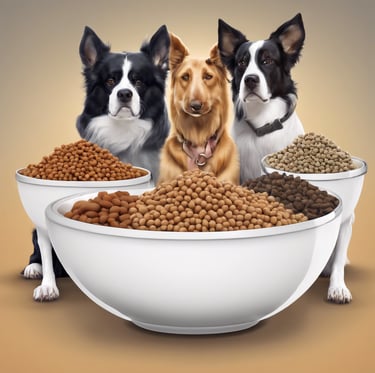



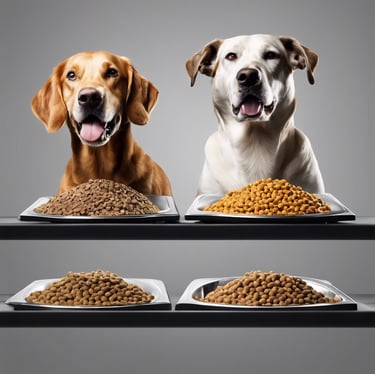





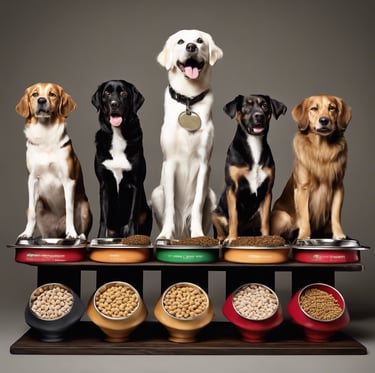





Why Recommended:
Benefits:
Highly digestible
Natural fiber to absorb excess water
Supports gradual return to normal diet
Why Recommended:
10. Homemade Bland Diet (Vet-Approved)
Benefits:
Limited ingredients for sensitive digestion
No grains, soy, or dairy
Key Ingredients:
Deboned lamb
Lamb meal
Sweet potatoes
Peas
A simple, grain-free recipe with lamb as the sole animal protein and sweet potato for digestible carbohydrates.
Why Recommended:
Amazon Associate
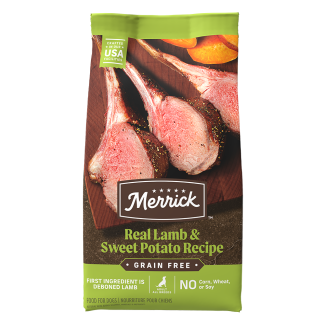

Benefits:
Prebiotics for gut flora balance
Beet pulp for improved stool quality
Key Ingredients:
Chicken
Ground whole grain corn
Brewers rice
Dried beet pulp
Formulated for sensitive stomachs, this food includes prebiotics and beet pulp to support digestive health and firm stools.Why Recommended:
Why Recommended:
Amazon Associate
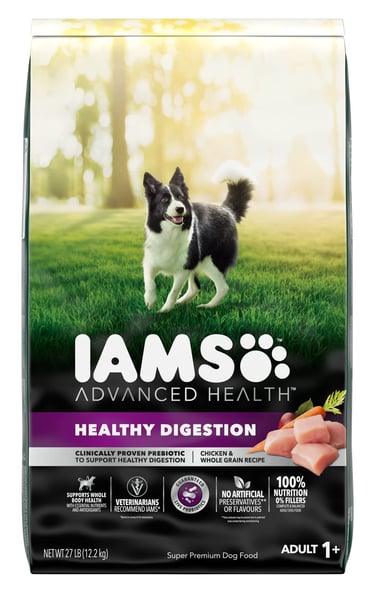

Benefits:
High in fiber for stool quality
Omega-3s for gut and skin health
Key Ingredients:
Sweet potatoes
Salmon
Menhaden fish meal
Canola oil
This grain-free, limited-ingredient diet uses sweet potatoes This grain-free, limited-ingredient diet uses sweet potato and fish, making it suitable for dogs with sensitivities and helping to firm up loose stools.otato and fish, making it suitable for dogs with sensitivities and helping to firm up loose stools.
Why Recommended:
Amazon Associate
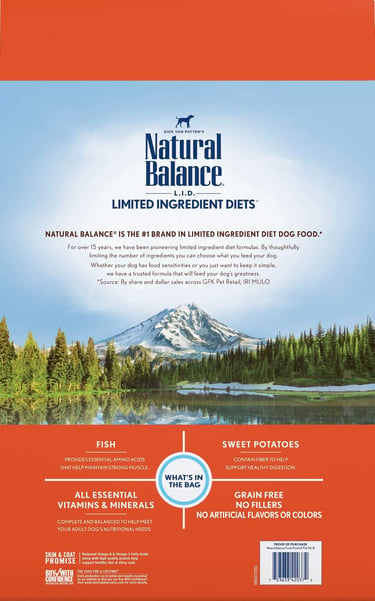

Benefits:
Minimal ingredients for easier digestion
No artificial preservatives or fillers
Key Ingredients:
Deboned turkey
Turkey meal
Potato
Peas
Tomato pomace
Why Recommended:
A straightforward, limited-ingredient formula that’s easy on sensitive stomachs and free from common irritants like grains, dairy, and artificial additives.
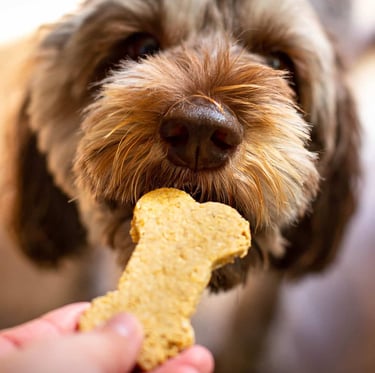



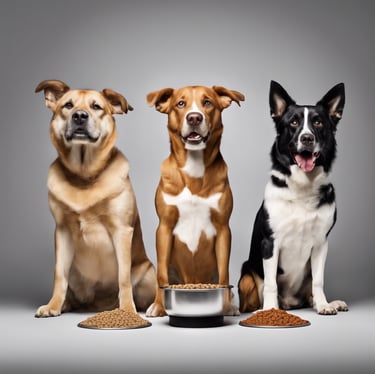

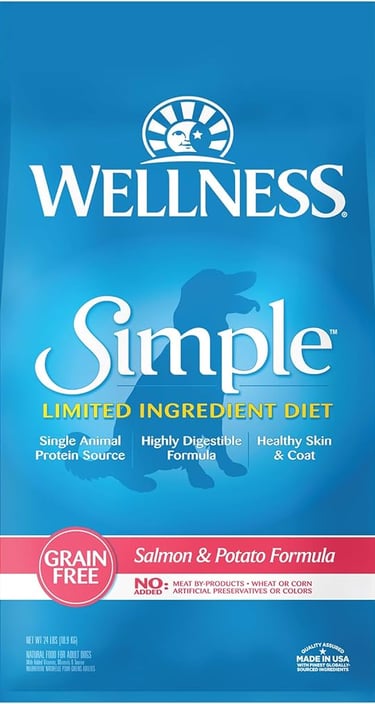




Sometimes, the best solution is a short-term homemade bland diet, especially during acute bouts of diarrhea. These diets are easy to digest and help reset your dog’s digestive system.


1.Which dog food brands offer the best probiotics for diarrhea?
Best Dog Food Brands Offering Probiotics for Diarrhea
When your dog suffers from diarrhea, probiotics can be a game-changer for restoring gut balance and supporting digestive health. Several leading dog food brands and supplements are specifically formulated with probiotics to help manage and prevent diarrhea. Here are the top brands and products, the probiotic strains they use, and why they’re recommended:
1. Purina Pro Plan FortiFlora
Why It’s Recommended:
Purina Pro Plan FortiFlora is widely recognized as one of the best probiotic supplements for dogs with diarrhea. It contains a specific strain, Enterococcus faecium SF68, proven to promote intestinal health and balance. FortiFlora is veterinarian-recommended and formulated for both puppies and adult dogs experiencing diarrhea. The powder is easy to administer-just sprinkle it over your dog’s food.
Key Probiotic Strain:
Enterococcus faecium SF68 (100 million CFU per sachet)
Benefits:
Promotes healthy gut flora and immune function
Helps manage and reduce diarrhea
Simple daily dosing with pre-measured packets
2. Nutramax Proviable-DC Digestive Health Supplement
Why It’s Recommended:
This supplement features a multi-strain formula with seven different beneficial bacteria, including Lactobacillus acidophilus and Bifidobacterium animalis, both known for improving stool consistency and reducing GI discomfort. Each capsule delivers 5 billion CFU and can be given whole or sprinkled over food.
Key Probiotic Strains:
Lactobacillus acidophilus
Bifidobacterium animalis
Five additional strains
Benefits:
Multi-strain formula for comprehensive gut support
Includes prebiotics to nourish beneficial bacteria
Effective for both short-term and daily use
3. Fera Pets Probiotics with Prebiotics
Why It’s Recommended:
Fera Pets offers a USDA-certified organic probiotic powder with 12 different strains and 5 billion CFU per scoop. The formula is tasteless, odorless, and easy to mix into food, making it ideal for picky eaters. It’s designed to support general GI wellness and specifically formulated to help lessen diarrhea.
Key Probiotic Strains:
Lactobacillus acidophilus
Bifidobacterium animalis
Ten additional strains
Benefits:
High strain diversity for broad-spectrum digestive support
Organic, vegan, and gluten-free
No additives or fillers
4. Zesty Paws Probiotic Bites
Why It’s Recommended:
These soft chews combine six probiotic strains (over 3 billion CFU per chew) with pumpkin, a classic digestive aid. The formula supports regularity and helps relieve digestive distress, including diarrhea. Available in pumpkin and chicken flavors, they’re a tasty, easy-to-administer.
Key Probiotic Strains:
Six strains, including Lactobacillus and Bifidobacterium species
Benefits:
Includes digestive enzymes and high-fiber pumpkin
Chewable and palatable for most dogs
Can be crumbled as a food topper
5. Purina Pro Plan Sensitive Skin & Stomach Turkey & Oatmeal Dry Dog Food
Why It’s Recommended:
This complete dog food is fortified with guaranteed live probiotics for digestive and immune health. Turkey is the first ingredient, and the formula is designed for dogs with sensitive systems, making it suitable for dogs prone to diarrhea.
Key Probiotic Strain:
Guaranteed live probiotics (specific strains not listed, but typically include Lactobacillus species)
Benefits:
Highly digestible with natural prebiotic fiber
No artificial colors or flavors
Supports both gut and skin health
6. Bonza Superfoods and Ancient Grains (with Calsporin®)
Why It’s Recommended:
Bonza’s vegan dog food includes the spore-forming probiotic Bacillus subtilis (Calsporin®), which is highly effective because it survives stomach acid and colonizes the gut. This formula combines probiotics, prebiotics, and postbiotics (synbiotics) for comprehensive digestive support-ideal for sensitive stomachs and diarrhea.
Key Probiotic Strain:
Bacillus subtilis (Calsporin®)
Benefits:
Survives harsh stomach environments
Reduces inflammation and supports gut barrier
Plant-based, suitable for food-sensitive dogs
7. Natural Probiotic Foods
Why They’re Recommended:
In addition to commercial foods and supplements, natural probiotic foods like kefir, plain unsweetened yogurt, and fermented vegetables can be added in small amounts to your dog’s diet. These foods provide live cultures that help restore gut flora and improve stool consistency4.
Key Probiotic Strains:
Lactobacillus acidophilus
Bifidobacterium animalis
Saccharomyces boulardii (in kefir)
Bacillus subtilis (in fermented veggies)
Benefits:
Natural, whole-food sources of probiotics
Easy to incorporate as meal toppers
Key Probiotic Strains for Diarrhea
Enterococcus faecium: Excellent for restoring gut flora, especially after antibiotics.
Lactobacillus acidophilus: Improves digestion and nutrient absorption, reduces diarrhea.
Bifidobacterium animalis: Enhances stool consistency and gut health.
Bacillus subtilis (Calsporin®): Spore-forming, survives stomach acid, reduces inflammation.
Saccharomyces boulardii: Beneficial yeast for combating persistent diarrhea.
Conclusion
For dogs with diarrhea, the best probiotic dog foods and supplements are:
Purina Pro Plan FortiFlora
Nutramax Proviable-DC
Fera Pets Probiotics with Prebiotics
Zesty Paws Probiotic Bites
Purina Pro Plan Sensitive Skin & Stomach
Bonza Superfoods and Ancient Grains
These brands offer targeted probiotic strains proven to support digestive health and help resolve diarrhea. Always consult your veterinarian before starting a new supplement, especially if your dog’s symptoms persist.
2.Are there any grain-free dog foods that are effective for diarrhea?
Yes, there are several grain-free dog foods that can be effective for managing diarrhea, especially in dogs with grain allergies, intolerances, or sensitive stomachs. Grain-free diets often use alternative fiber sources like lentils, sweet potatoes, and flaxseed, which can help support digestive health and reduce symptoms like gas and diarrhea.
Why Choose Grain-Free for Diarrhea?
Grain sensitivities: Some dogs have trouble digesting grains, which can lead to bloating, gas, or diarrhea. For these dogs, grain-free diets that use gentle, easily digestible ingredients (like sweet potatoes and legumes) may help improve stool quality and reduce digestive upset.
Alternative fiber sources: Grain-free formulas often include fiber-rich ingredients such as lentils, flaxseed, and pumpkin, which can help firm up stools and regulate digestion.
Premium grain-free foods: High-quality grain-free dog foods are often more digestible, leading to smaller, firmer, and less frequent stools. Many pet owners report improvement in their dog’s digestive health after switching to a grain-free, high-protein diet.
Tips for Success
Transition gradually: Sudden changes in diet, even to grain-free foods, can cause or worsen diarrhea. Introduce new foods slowly over one to two weeks to allow your dog’s digestive system to adjust.
Quality matters: Not all grain-free dog foods are created equal. Look for reputable brands that use high-quality, easily digestible protein and fiber sources.
Consult your vet: Always check with your veterinarian before making significant dietary changes, especially if your dog has ongoing digestive issues.
Common Grain-Free Ingredients Beneficial for Diarrhea
Sweet potatoes
Lentils
Flaxseed
Pumpkin
Peas
Summary Table
Grain-free dog food can be effective for diarrhea in dogs with specific sensitivities or intolerances, provided you select a high-quality formula and transition slowly. Always monitor your dog’s response and consult your veterinarian for personalized advice.
3.How do prebiotics and probiotics in dog food help with diarrhea?
How Prebiotics and Probiotics in Dog Food Help with Diarrhea
Probiotics and prebiotics play complementary roles in supporting your dog's digestive health, especially during episodes of diarrhea. Here’s how each works and why their inclusion in dog food is beneficial for managing and preventing diarrhea.
Probiotics: Restoring Gut Balance
Probiotics are live beneficial bacteria that, when consumed, help restore and maintain a healthy balance of gut microflora. Diarrhea in dogs is often linked to an imbalance in the gut microbiome, which can be caused by stress, dietary changes, infections, or antibiotics.
How Probiotics Help:
Replenish Good Bacteria: Probiotics increase the population of beneficial bacteria in the gut, which can be depleted during diarrhea or antibiotic use.
Shorten Diarrhea Duration: Certain strains, such as Enterococcus faecium, Lactobacillus acidophilus, and Bifidobacterium animalis, have been shown to reduce the length and severity of diarrhea episodes in dogs.
Reduce Inflammation: Probiotics help calm inflammation in the gastrointestinal tract, promoting faster recovery.
Combat Harmful Pathogens: Some probiotic strains inhibit the growth of harmful bacteria that contribute to diarrhea.
Key Strains for Diarrhea:
Enterococcus faecium (shortens diarrhea duration)
Lactobacillus acidophilus (improves digestion, reduces diarrhea)
Bifidobacterium animalis (enhances stool consistency)
Saccharomyces boulardii (combats diarrhea by reducing harmful pathogens)
Prebiotics: Feeding the Good Bacteria
Prebiotics are non-digestible fibers that serve as food for the beneficial bacteria in your dog’s gut. By nourishing these microbes, prebiotics help maintain a healthy intestinal environment and support the action of probiotics.
How Prebiotics Help:
Support Digestive Health: Prebiotic fibers regulate digestion and promote healthy stool formation, which is crucial for dogs with diarrhea.
Promote Bacterial Balance: By feeding the good bacteria, prebiotics help crowd out harmful microbes that can cause or worsen diarrhea.
Enhance Immunity: A healthy gut microbiome, supported by prebiotics, strengthens the immune system and helps prevent future digestive upsets.
Common Prebiotic Ingredients:
Chicory root
Inulin
Beet pulp
Sweet potato (acts as a prebiotic fiber)
Synergy: Synbiotics for Optimal Gut Health
When prebiotics and probiotics are combined in dog food or supplements, they form synbiotics. This synergy maximizes the growth and effectiveness of beneficial bacteria, leading to better outcomes for dogs with diarrhea.
Summary Table:
Component Role in Gut Health and how It Helps with Diarrhea. Probiotics Add beneficial bacteria Restore balance, reduce duration Prebiotics Feed beneficial bacteria Support stool quality, immunity Synbiotics Combine prebiotics + probiotics Enhance effectiveness, prevent relapse.
Conclusion:
Incorporating prebiotics and probiotics into your dog’s diet can help manage and prevent diarrhea by restoring gut balance, supporting healthy digestion, and strengthening immunity. For best results, look for dog foods or supplements containing both, and consult your veterinarian for guidance tailored to your dog’s needs.
4.What are the main differences between wet and dry dog foods for diarrhea?
Main Differences Between Wet and Dry Dog Foods for Diarrhea
When managing diarrhea in dogs, the choice between wet and dry dog food can impact recovery and comfort. Here are the primary differences, with a focus on how each may affect dogs experiencing diarrhea:
Moisture Content:
Wet Dog Food: Contains much higher moisture (up to 78%), which helps keep dogs hydrated-especially important during diarrhea when fluid loss is a concern. The extra hydration can also make digestion easier and soothe the GI tract.
Dry Dog Food: Has low moisture content (typically around 10% or less), so dogs need to drink more water separately to stay hydrated.
Digestibility and Palatability:
Wet Dog Food: Generally easier to chew and digest due to its soft texture and higher water content. This can be gentler on sensitive stomachs and more appealing to dogs with reduced appetites or dental issues.
Dry Dog Food: Often denser and may be harder to chew for dogs with dental problems, but high-quality dry foods can still be easy to digest for many dogs.
Nutrient and Calorie Density:
Wet Dog Food: Typically has lower calorie and carbohydrate density per serving, which can be helpful for dogs with sensitive stomachs. The lower fat and carb content may also reduce the risk of further digestive upset.
Dry Dog Food: More calorie-dense and concentrated, which is convenient for storage and feeding but may be harder to portion appropriately for dogs with digestive issues.
Convenience and Storage:
Wet Dog Food: Requires refrigeration after opening and has a shorter shelf life. It can be messier to serve but is ideal for short-term feeding during illness.
Dry Dog Food: Easy to store, measure, and serve, with a long shelf life. It’s often more cost-effective and practical for daily feeding.
Dental Health:
Wet Dog Food: Does not provide the abrasive action needed to help clean teeth, so dogs fed only wet food may be more prone to tartar buildup unless dental care is provided.
Dry Dog Food: The crunchy texture can help reduce tartar and maintain dental health, though this is not a substitute for regular dental care.
Summary Table:
Which Is Better for Diarrhea?
Wet food is often recommended for dogs with diarrhea due to its high moisture content, ease of digestion, and gentler impact on sensitive stomachs.
Dry food can still be suitable if it’s formulated for sensitive digestion and the dog is well-hydrated, but may not be as beneficial for hydration and immediate digestive relief.
Always consult your veterinarian to determine the best option for your dog’s specific needs, especially during digestive upset.
5.Can dogs with food allergies benefit from these dog foods for diarrhea?
Yes, dogs with food allergies can benefit from dog foods formulated for diarrhea-if those foods are carefully selected to avoid their specific allergens. Many of the best dog foods for diarrhea are also designed to be gentle on the digestive system and minimize the risk of allergic reactions by using limited ingredients, novel proteins, or hypoallergenic formulations.
How These Foods Help Dogs with Allergies and Diarrhea
Hypoallergenic and Limited Ingredient Diets:
These diets use a minimal number of ingredients, often featuring a single novel protein (like duck, venison, or lamb) and a single carbohydrate source (such as sweet potato or pumpkin). This reduces the risk of triggering allergies and helps soothe the digestive tract, making them ideal for dogs with both allergies and diarrhea.Novel Protein and Hydrolyzed Protein Diets:
Foods with novel proteins (proteins your dog hasn’t eaten before) or hydrolyzed proteins (proteins broken down into smaller, less allergenic components) are less likely to provoke an immune response. These options are especially useful for dogs with known protein allergies and can help manage both allergy symptoms and digestive upset456.Digestible Carbohydrates and Added Fiber:
Ingredients like sweet potato, pumpkin, or butternut squash provide easily digestible energy and fiber, which can help firm up stools and regulate digestion without irritating sensitive stomachs123.Probiotics and Prebiotics:
Many recommended foods include probiotics and prebiotic fibers, which support a healthy gut microbiome, aid digestion, and promote firmer stools-beneficial for both allergy-prone and sensitive dogs135.
Key Recommendations:
Look for:
Limited ingredient diets
Novel or hydrolyzed protein sources
Easily digestible carbohydrates
Added probiotics and prebiotics
High-quality, transparent ingredient sourcing
Avoid:
Examples of Suitable Brands:
Hill's Science Diet Sensitive Stomach & Skin
Royal Canin Gastrointestinal or Hydrolyzed Protein
Purina Pro Plan Sensitive Skin & Stomach
Blue Buffalo Basics Limited Ingredient Diet
Natural Balance L.I.D. (Limited Ingredient Diets)
Conclusion:
Dog foods formulated for diarrhea-especially those labeled as hypoallergenic, limited ingredient, or featuring novel/hydrolyzed proteins-can be highly beneficial for dogs with food allergies. These diets are designed to reduce digestive upset, minimize allergic reactions, and promote overall gut health. Always consult your veterinarian to select the most appropriate food for your dog's specific allergies and digestive needs.
